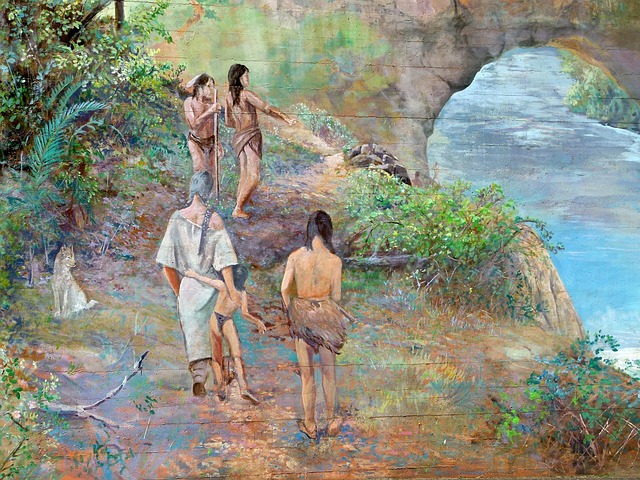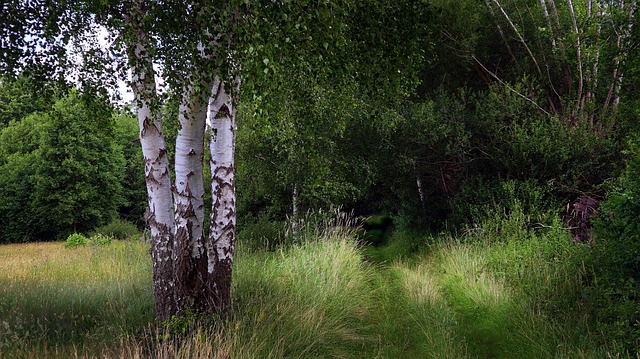Lane County, Oregon, is characterized by a rich indigenous heritage with tribes like the Umpqua, Coos, and Chinook who have sustained themselves through traditional hunting, gathering, and fishing practices for millennia. These cultural traditions deeply connect to the region's ecosystems, influencing modern environmental stewardship on Oregon tribal lands. Governed by state and federal laws, hunting and gathering on these lands are regulated to protect natural resources and cultural heritage. Tribal members in Lane County continue to pass down sustainable practices while advocating for land preservation and rights recognition, ensuring their way of life and contributing to the region's ecological health.
In Lane County, Oregon, indigenous tribes have historically relied on hunting and gathering as essential components of their culture and sustenance. This article explores the rich tribal heritage embedded in the region’s landscape, delving into traditional practices, legal frameworks, and the profound connection between land and Native American communities. We examine modern initiatives to preserve these time-honored traditions while addressing challenges faced by Lane County’s tribal populations on their quest for cultural continuity and self-determination on Oregon tribal lands.
- Historical Context: A Glimpse into Lane County's Tribal Heritage
- Tribal Communities and Their Traditional Practices
- Hunting and Gathering Laws and Regulations in Oregon
- The Role of Land in Tribal Culture and Sustenance
- Modern Efforts to Preserve and Revitalize Hunting Traditions
- Challenges and Opportunities for Lane County Tribal Communities
Historical Context: A Glimpse into Lane County's Tribal Heritage

Lane County, Oregon, boasts a rich and diverse history intertwined with the indigenous tribes who have called this land their home for millennia. The county’s tribal heritage is deeply rooted in the hunting and gathering practices that sustained these communities for generations. Long before European colonization, Native American tribes like the Umpqua, Yachts, and Kalapuya inhabited the lush forests, fertile valleys, and coastal regions of what is now Lane County. These tribes had a profound understanding of their environment, developing intricate knowledge of local plant and animal ecosystems. Their hunting strategies were sustainable, ensuring the resources they relied upon remained abundant for future generations.
The historical context of Oregon tribal lands, including those within Lane County, is characterized by a harmonious relationship between humans and nature. Tribal communities practiced traditional methods of food gathering, such as hunting with bow and arrow, trapping, and fishing, utilizing their deep cultural knowledge to maintain ecological balance. This sustainable approach to living in harmony with the land has left an indelible mark on the region’s history and continues to influence modern-day environmental practices and stewardship.
Tribal Communities and Their Traditional Practices

Lane County, Oregon, is home to several Tribal Communities who have practiced traditional hunting and gathering for generations on their ancestral lands. These communities include the indigenous peoples of the Umpqua, Coos, and Great Southern Bands of the Chinook Tribe, among others. Their practices are deeply rooted in cultural traditions and ecological knowledge, allowing them to sustain themselves through the harvest of wild foods such as berries, roots, and game.
The Oregon tribal lands offer a rich tapestry of biodiversity, with diverse ecosystems ranging from coastal forests to high desert regions. Tribal members have developed sophisticated methods for tracking game, identifying edible plants, and managing natural resources sustainably. These traditional practices not only support their cultural identity but also contribute to the overall health and resilience of the local ecosystem, showcasing a harmonious relationship between people and the environment that has endured for centuries.
Hunting and Gathering Laws and Regulations in Oregon

In Oregon, hunting and gathering on tribal lands are governed by a complex interplay of state and federal laws designed to protect both cultural heritage and natural resources. The state offers specific regulations for Native American tribes, recognizing their sovereignty over traditional practices. These regulations ensure that hunting and gathering activities are conducted sustainably and respectfully, preserving the rich ecological balance of Oregon’s diverse landscapes.
Tribal members in Lane County, Oregon, adhere to these laws, which include permits, season limitations, and size restrictions on game taken. These measures not only safeguard wildlife populations but also maintain a harmonious relationship between communities and the land. Understanding and respecting these regulations is essential for anyone planning to engage in hunting or gathering activities on Oregon tribal lands, fostering a collaborative environment that respects both cultural traditions and environmental conservation.
The Role of Land in Tribal Culture and Sustenance

In Lane County, Oregon, tribal lands have been integral to the cultural and sustenance practices of indigenous communities for millennia. The land serves as more than just a physical space; it is a living entity that nourishes both the body and spirit. Tribal cultures in this region have developed intricate knowledge systems centered around hunting, gathering, and farming, deeply intertwined with the natural environment. These practices not only provide sustenance but also foster a profound connection to the land, passing down traditional ecological knowledge from generation to generation.
Oregon tribal lands offer a rich diversity of resources that have sustained communities over time. From forests teeming with game to rivers brimming with fish, and meadows abundant in wild foods, these territories provide a holistic approach to sustenance. Indigenous peoples have historically utilized sustainable hunting and gathering methods, ensuring the land’s resources are preserved for future generations. This harmonious relationship between people and their environment is a cornerstone of tribal culture, shaping their way of life, ceremonies, and overall well-being.
Modern Efforts to Preserve and Revitalize Hunting Traditions

In modern times, there’s a growing effort among tribes in Lane County, Oregon, to revitalize and preserve their ancient hunting and gathering traditions. These initiatives are centered around reconnecting with cultural heritage, promoting sustainability, and ensuring the continuation of knowledge passed down through generations. Tribal communities are actively involved in educational programs, where they teach youth about traditional practices, tracking skills, and the importance of respecting and understanding the land.
Oregon tribal lands hold immense cultural significance, and hunting remains a vital part of their identity. By incorporating modern techniques while honoring ancestral methods, these tribes strive to maintain their autonomy and protect their way of life. They collaborate with conservation groups and local authorities to promote sustainable harvesting practices, ensuring the preservation of natural resources for future generations while fostering a deeper connection between communities and the land.
Challenges and Opportunities for Lane County Tribal Communities

Lane County, Oregon, home to several Native American tribes, faces a unique set of challenges and opportunities regarding traditional hunting and gathering practices. One of the primary hurdles is the limited access to Oregon tribal lands due to historical land losses and modern-day development pressures. This restriction hinders tribes’ ability to sustain their cultural connections and maintain a consistent food source. However, there are also prospects for growth and preservation. Many Lane County tribes are actively working on reclaiming and protecting their ancestral lands, ensuring future generations can continue the time-honored traditions of hunting, fishing, and gathering.
The Oregon tribal communities are seizing opportunities to educate both their own members and the general public about sustainable practices and environmental stewardship. They are also advocating for policies that recognize and protect indigenous rights, ensuring a harmonious balance between traditional knowledge and modern conservation efforts. These initiatives not only preserve cultural heritage but also contribute to the overall ecological health of the region.






